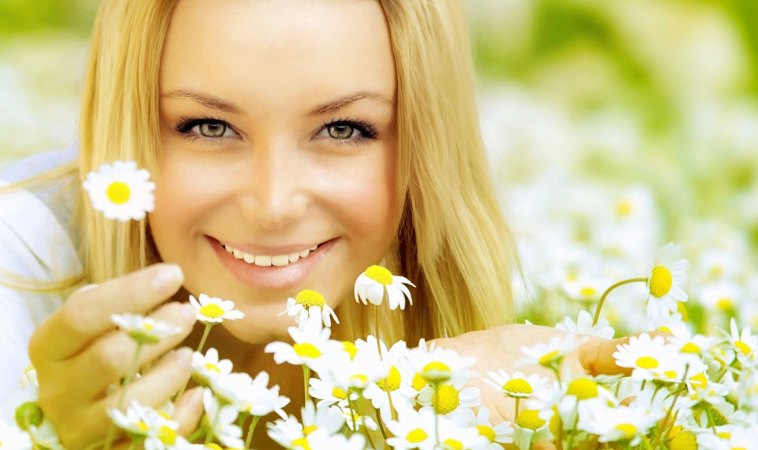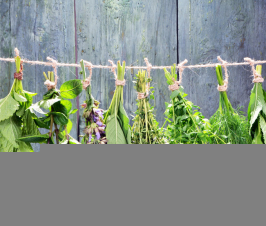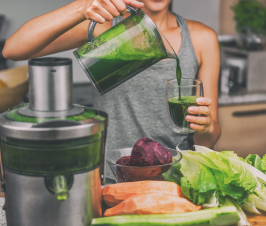Those that know me, know that I’m kind of a nerd about herbs.
They know this because I like making a point of it at nearly every chance I get…in the hopes that it might start up a conversation, about herbs.
You’re alive. I’m alive. Plants are alive. And it’s through our shared evolutionary heritage with the plant kingdom that herbal remedies do their work.
We sometimes forget that plant based medicines were the exclusive form of medicine for the majority of our time on this planet. It’s only the past hundred years or so that the pharmaceutical industry swooped in to give things a try. And while drug’s impressive brawn and vigor have done us a world of good (and yes, some bad), we wound up putting all of our eggs into the drugstore basket. Neglecting, suppressing, and even ridiculing our once rich herbal past.
Indigenous healers were extraordinary empirical observers who believed that the earth was alive, and analyzed Mother Nature’s gifts with reverence. The plant world once cultivated an attentiveness of mind where we understood that we were all made up of the same sacred “stuff” of the universe. A time when people bonded with Nature as much as they currently bond with their pets.
In this article I hope to bring back an admiration beyond surface attraction and the fancy for flowers on the kitchen table. They are gentle and effective medicinal therapies that benefit our bodies in an endless number of ways. Note: Though there are are no magic bullets here, there is magic no doubt.
So here are my top 3 favourite plant remedies that you can start using today. Most of which can be grown, prepared, and enjoyed from home.
Chamomile (Matricaria recutita)
One of the daintiest and tastiest of the bunch, chamomile is a mild nervous system sedative and powerful anti-inflammatory.1 It’s high volatile oil & flavonoid content make it the perfect way to end a busy day, especially if you tend to feel your tension in your tummy. It’s especially good at healing conditions involving the digestive tract, where it soothes the gut lining and relaxes the nerves in both brain and bowels. Indigestion, anxiety, and the infamous “Irritable Bowel Syndrome” will benefit from it’s tender loving care.
Collect and gently dry the tiny flowering tops. Add 1 cup almost boiling water to 1 tbsp dried herb. Cover and steep for 15 min. Drink freely.
Licorice Root (Glycyrrhiza glabra)
Licorice is one of a group of herbs that affect our endocrine (or hormonal) system, and particularly those hormones involved in the physiology of stress. In herbal medicine we call these Adaptogens, and there’s really no man-made drug quite like them. The plant steroids present in licorice mimic the molecular shape of our own endogenous steroid cortisol,2 and will modulate it’s effects whether or not we’re making too much or not enough. As a tea it’s also awesome for expelling mucous when germ-ridden and full of phlegm.
Simmer 1 tsp of dried licorice root in 1 cup of water. Bring to a boil and simmer for 15 min. Strain off the herb and drink up to 3x/day. (Note: it’s sweet and serious. So beware if you hate the taste).
Stinging Nettle or Nettle Leaf (Urtica diocia)
We’re normally conditioned to avoid Stinging Nettle at all costs. When growing fresh the young leaves contain enough formic acid to cause an attractive, itchy, red pustule-like rash to erupt wherever it makes contact with the skin. Harvested however, it’s just another harmless leafy green, full of vitamins (like C), minerals (like iron),3 and a whole slew of other health-ful stuff. It’s regular use helps prevent inflammation & allergies, and will detoxify the body as a wholeby promoting the elimination of wastes through our lymph and other excretory systems (eg. bladder, bowels, skin). Use fresh nettle as food and cook it the same way you might spinach. Watch for it growing alongside blackberry bushes (they often compete for territory), get yourself a good pair of gloves, and forage!
Steep 3 Tbsp of dried herb in 3 cups water overnight, drink throughout the day to promote general health and detoxification.
Remember that, “Nature’s harmony itself is medicine”,and rekindling our connection to the plant world can impart all levels of our innate healing processes, physically, mentally, emotionally, and spiritually.
Happy Herb’ing!
 Dr. Marisa Marciano is a licensed ND in private practice at Evoke Integrative Medicine in downtown Vancouver BC where she focuses on the use of custom herbal formulations alongside dietary & lifestyle counselling to achieve meaningful results for her patients. Also an academic & clinical faculty member at BINM, Dr. Marciano is a passionate educator for the power of plant medicine and is creator of the popular online resource ‘TheNaturopathicHerbalist.com’, which integrates traditional herbal wisdom with contemporary medical research, and empowers others to achieve health by reconnecting with ancient & effective “ecological healing” techniques that are inherently in tune with Nature.
Dr. Marisa Marciano is a licensed ND in private practice at Evoke Integrative Medicine in downtown Vancouver BC where she focuses on the use of custom herbal formulations alongside dietary & lifestyle counselling to achieve meaningful results for her patients. Also an academic & clinical faculty member at BINM, Dr. Marciano is a passionate educator for the power of plant medicine and is creator of the popular online resource ‘TheNaturopathicHerbalist.com’, which integrates traditional herbal wisdom with contemporary medical research, and empowers others to achieve health by reconnecting with ancient & effective “ecological healing” techniques that are inherently in tune with Nature.
References:
- Chevallier, A. Natural Health Encyclopedia of Herbal Medicine, New York: DK Pub., 2000.
- Mills, S. & Bone. K. Principles & Practice of Phytotherapy. Edinburg: Churchill Livingstone, 2000.
- Criollo, J. Medicinal Herbs Quick Reference Guide. Surrey: Wellness Trading Post, 2004.


















<3 your top picks… I grew chamomile last year for the first time & was enchanted with it! (This year I've got Roman and German started 🙂 )